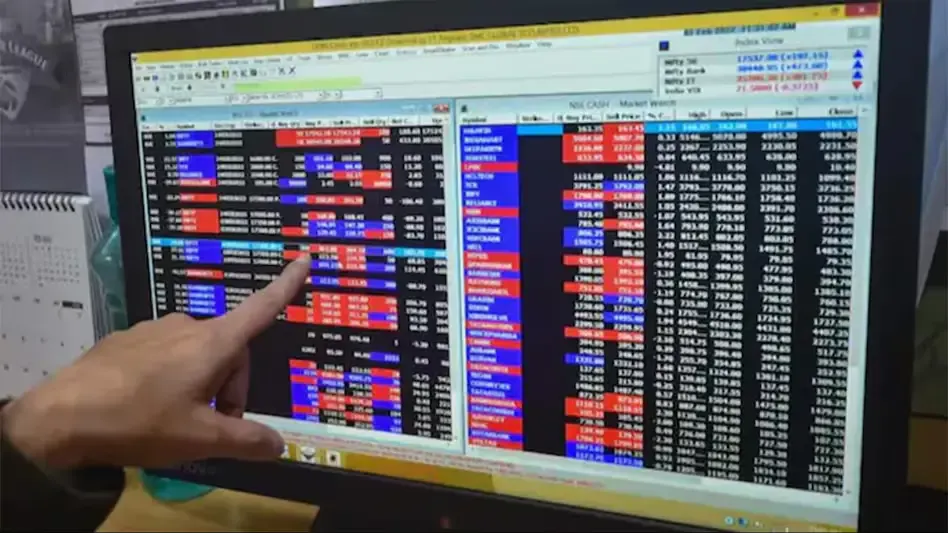New Delhi: On Tuesday, the Supreme Court granted bail to Sanjay Singh, the head of the Aam Aadmi Party, and asked the Enforcement Directorate, which had detained Mr. Singh, pointed questions, such as why he had been imprisoned for more than six months without being given a chance to defend himself or get back the ₹ 2 crore bribe that was allegedly paid.
The agency, claiming the party collected 600 crore in bribes, was told by the court that "nothing has been recovered... there is no trace (of money allegedly received by the AAP as bribes for allotting liquor licences to the 'South Group')".
The court then ordered Additional Solicitor General SV Raju to speak with the ED and determine if Mr. Singh's detention is now necessary. Following the Enforcement Directorate's declaration that it did not desire custody, Mr. Singh was freed.
"I am making this statement (not opposing bail) without going into the merits of the case and keeping all the rights and contentions open," said Mr. Raju.
The court had already noted that in his first comments, accused person Dinesh Arora—who later became a government witness or approver—had not implicated Mr. Singh. Based on comments made by Mr. Arora, who was granted release in August, Mr. Singh was taken into custody.
Since his arrest in October in connection with the alleged liquor policy fraud, which rocked the opposition party and resulted in the arrests of Mr Sisodia and Chief Minister Arvind Kejriwal weeks before the election, Sanjay Singh has been detained in Delhi's Tihar Jail.
Charges of money laundering related to the purported scheme led to Mr. Singh's detention.
His previous bail requests were denied, even by the Delhi High Court, which stated in February that there was "no ground" for release.
Then, the ED had contested the bail request, claiming that Mr. Singh had been involved in the acquisition, possession, concealment, disbursement, and use of criminal gains resulting from the purported liquor fraud.
Sanjay Singh of the AAP gets bail
After a panel of Justices Sanjiv Khanna, Dipankar Datta, and Prasanna B. Varale declared that Mr. Singh might be discharged while the trial was pending, such relief was ultimately provided this afternoon.The trial court will determine the terms and circumstances of the release, according to the court. The fact that Mr. Singh is able to engage in political activities—that is, run for office and support the AAP, which may be shorthanded in well-known leaders in the run-up to the elections—is noteworthy, though.
He has been advised not to discuss the probe, though.
The court further declared that precedent in comparable circumstances could not be applied to the bail.
Atishi, a colleague and Delhi PWD Minister, expressed happiness at Mr. Singh's release by posting on X (formerly Twitter) with the message "satyameva jayate," or "the truth will win." Since Chief Minister Kejriwal's detention, Atishi has spearheaded the AAP's resistance and claims of innocence.
She asserted this morning that if she and the other four AAP leaders do not join the Bharatiya Janata Party, they will be arrested by central agents in relation to the alleged liquor policy scandal. The opposition has often charged the BJP with targeting opponents with the help of federal agencies, especially in the run-up to an election. Similarly consistently, the BJP has refuted the accusations.
What Is the Alleged Scam of Delhi Liquor Policy?
The Enforcement Directorate asserts that the now-repeated spirits policy gave retailers an unconscionably large profit margin of 185% and wholesalers a profit margin of 12%. Six percent of the latter, or more than ₹ 600 crore, were bribes, and it is said that the AAP utilised the funds to finance its election campaigns.The ED labelled Chief Minister Kejriwal the "kingpin" of this purported fraud, and on March 21 he was taken into custody. Up to April 15, Mr. Kejriwal, who is still in charge of the Delhi administration, is being held in Tihar Jail.





 StoryMAG is an amazing news site that covers all of the world news, tips, tech news etc.
StoryMAG is an amazing news site that covers all of the world news, tips, tech news etc.